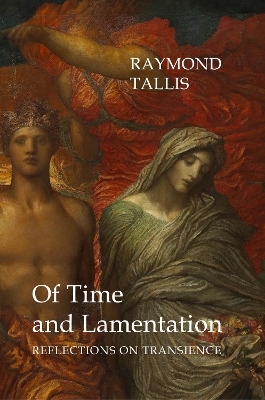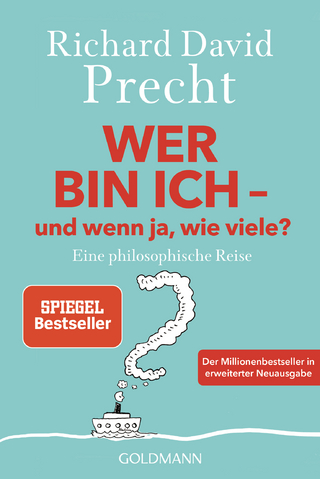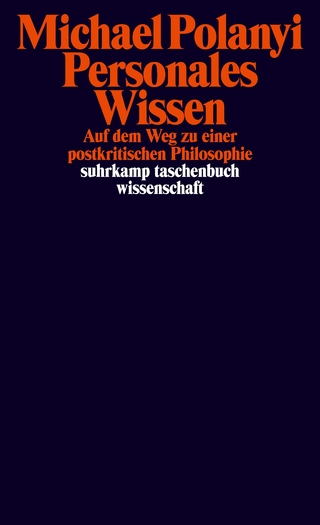
Of Time and Lamentation
Agenda Publishing (Verlag)
978-1-911116-21-9 (ISBN)
Time’s mysteries seem to resist comprehension and what remains, once the familiar metaphors are stripped away, can stretch even the most profound philosopher. In Of Time and Lamentation, Raymond Tallis rises to this challenge and explores the nature and meaning of time and how best to understand it. The culmination of some twenty years of thinking, writing and wondering about (and within) time, it is a bold, original and thought-provoking work. With characteristic fearlessness, Tallis seeks to reclaim time from the jaws of physics.
For most of us, time is composed of mornings, afternoons and evenings and expressed in hurry, hope, longing, waiting, enduring, planning, joyful expectation and grief. Thinking about it is to meditate on our own mortality. Yet, physics has little or nothing to say about this time, the time as it is lived. The story told by caesium clocks, quantum theory and Lorentz coordinates, Tallis argues, needs to be supplemented by one of moss on rocks, tears on faces and the long narratives of our human journey. Our temporal lives deserve a richer attention than is afforded by the equations of mathematical physics.
The first part of the book, “Killing Time” is a formidable critique of the spatialized and mathematized account of time arising from physical science. The passage of time, the direction of time and time travel are critically examined and the relationship between mathematics and reality, and the nature of the observer, are explored. Part 2, “Human Time” examines tensed time, the reality of time as it is lived: what we mean by “now”, how we make sense of past and future events, and the idea of eternity. With the scientistic reduction of time set aside and lived time reaffirmed, Tallis digs deeper into the nature of time itself in the final part, “Finding Time”. Questions about “the stuff” of time such as instants and intervals about time and change, and the relationship between objective and subjective time, open on to wider discussions about time and causation, the irruption of subjectivity and intentionality into a material universe, and the relationship between time and freedom.
For anyone who has puzzled over the nature of becoming, wondered whether time is inseparable from change, whether time is punctuate or continuous, or even whether time, itself, is real, Of Time and Lamentation will provoke and entertain. Those, like Tallis himself, who seek to find a place at which the scientific and humanistic views of humanity can be reconciled, will celebrate his placing of human consciousness at the heart of time, and his showing that we are “more than cogs in the universal clock, forced to collaborate with the very progress that pushes us towards our own midnight”.
Raymond Tallis trained in medicine at Oxford University and at St Thomas’ Hospital London before becoming Professor of Geriatric Medicine at the University of Manchester. He was elected a Fellow of the Academy of Medical Sciences for his research in clinical neuroscience and he has played a key role in developing guidelines for the care of stroke patients in the UK. From 2011–14 he was Chair of Healthcare Professionals for Assisted Dying. He retired from medicine in 2006 to become a full-time writer. His books have ranged across many subjects – from philosophical anthropology to literary and cultural criticism – but all are characterised by a fascination for the infinite complexity of human lives and the human condition. The Economist’s Intelligent Life magazine lists him as one of the world’s leading polymaths.
Overture (mainly polemic): why time?
Part I: Killing Time
1. Introduction: Seeing Time
2. Time as “The Fourth Dimension”
3. Mathematics and the Book of Nature
4. Clocking Time
Part II: Human Time
5. In Defence of Tense
6. Living Time: Now
7. The Past: Locating the Snows of Yesteryear
8. Concerning Tomorrow (Today)
9. Beyond Time: Temporal Thoughts on Eternity
Part III: Finding Time
10. (What) Is Time?
11. The Onlooker: Causation and Explicit Time
12. Time and Human Freedom
Epilogues
| Erscheinungsdatum | 13.10.2018 |
|---|---|
| Verlagsort | Newcastle upon Tyne |
| Sprache | englisch |
| Maße | 156 x 234 mm |
| Themenwelt | Geisteswissenschaften ► Philosophie ► Metaphysik / Ontologie |
| Naturwissenschaften ► Physik / Astronomie ► Astronomie / Astrophysik | |
| ISBN-10 | 1-911116-21-5 / 1911116215 |
| ISBN-13 | 978-1-911116-21-9 / 9781911116219 |
| Zustand | Neuware |
| Informationen gemäß Produktsicherheitsverordnung (GPSR) | |
| Haben Sie eine Frage zum Produkt? |
aus dem Bereich


